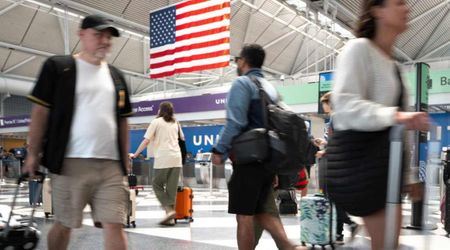Family Dollar Stores Are Closing; Here's Why Some View This As Opportunity To Stimulate Local Economies

In the latest earnings report, officials disclosed that Family Dollar and Dollar Tree plan to shut nearly 1,000 stores in the upcoming years. Family Dollar, in particular, intends to close outlets in 600 locations during the first half of 2024 and gradually phase out another 370 as leases expire thereafter. This decision follows a decline in sales and economic challenges, with the company reporting a net loss of $1.71 billion.
Nearly 1,000 Family Dollar stores are closing, owner Dollar Tree announces https://t.co/YuZluqxxeK
— USA TODAY (@USATODAY) March 14, 2024
The Mass Closure
In its report, Family Dollar highlighted stubborn inflation, theft, and the cessation of pandemic-era additional benefits from the federal government’s Supplemental Nutrition Assistance Program as primary concerns weighing heavily on its operations. The consumer pullback amid soaring inflation has severely impacted the company, leading to decreased profits.
The chain finds itself lagging behind major discount competitors like Walmart and Dollar General.

Furthermore, years of mismanagement and deteriorating store conditions have tarnished the brand name. Recently, the retail chain faced a hefty fine of over $40 million for a rat infestation at a warehouse, resulting in the temporary closure of hundreds of stores.
The closures are anticipated to bolster the company’s profitability. However, the disappearance of around 1000 stores is likely to leave a void for American consumers already facing limited shopping choices.
Family Dollar is fined over $40 million due to a rodent infestation in its warehousehttps://t.co/3D3nRBgj9s
— WOSU News (@wosunews) March 1, 2024
Family Dollar Under Scrutiny
In the past, local leaders in various cities have restricted the expansion of retail chains like Family Dollar, alleging that they disproportionately target communities of color and low-income neighborhoods.
A 2020 study from the University of Georgia identified race as a significant factor in the locations of these retail chain stores. Family Dollar, in particular, was highlighted for its explicit targeting of communities of color, often opening stores in areas where small or independent grocers had closed shop.
Community Concerns
Vanessa Hall-Harper, a city councilor in Tulsa, emphasized the risks associated with over-reliance on dollar store chains. She hopes that the closures will prompt cities to prioritize improving independent supermarkets and fostering alternative retail options.

Tulsa took proactive measures in 2018 by passing legislation prohibiting dollar chain stores from opening within a mile of existing locations. This move came as the city grappled with over 50 stores from these three chains within the city limits.
Nationwide Trends
Following Tulsa's lead, at least 60 cities and counties nationwide have implemented similar restrictions on new dollar store development. Among these are New Orleans, Cleveland, Birmingham (Alabama), Fort Worth (Texas), and Akron. These actions reflect a growing awareness and effort to combat economic consolidation, as advocated by organizations like the Institute for Local Self-Reliance.
Dollar stores target struggling communities, particularly Black neighborhoods. Our research shows a strong correlation between dollar store locations & predominantly African American areas in Tulsa, OK. Check out North Tulsa's efforts to fight back: https://t.co/lZ409XfVdq pic.twitter.com/xlBDZXSbOx
— Institute for Local Self-Reliance (@ilsr) December 19, 2018
Embracing New Opportunities
Local opponents of Family Dollar's closures believe that shutting down these stores will create opportunities for independent retailers and a broader range of shopping options. "Cities are grappling with corporate brands that show little concern for their communities," remarked Cleveland City Council President Blaine Griffin in a CNN report.
The Rivertown Market, the Meijer Inc. small-format grocery store on East Jefferson just outside of downtown Detroit, opened its doors for the first time at 7 a.m. today. Parking is pretty packed. #DetroitCRE
— Kirk Pinho (@kirkpinhoCDB) October 6, 2021
Background here: https://t.co/CiCYFtRxTN @crainsdetroit pic.twitter.com/AfVbygv5qL
Griffin also suggested the possibility of major brands like Meijer venturing into underserved areas by opening small supermarkets. However, he cautioned that similar models have faltered in other cities.
Attempts by retail giants like Walmart and Target to establish small-scale stores in cities like Chicago and Baltimore ultimately resulted in closures, exacerbating the existing void in retail options.























